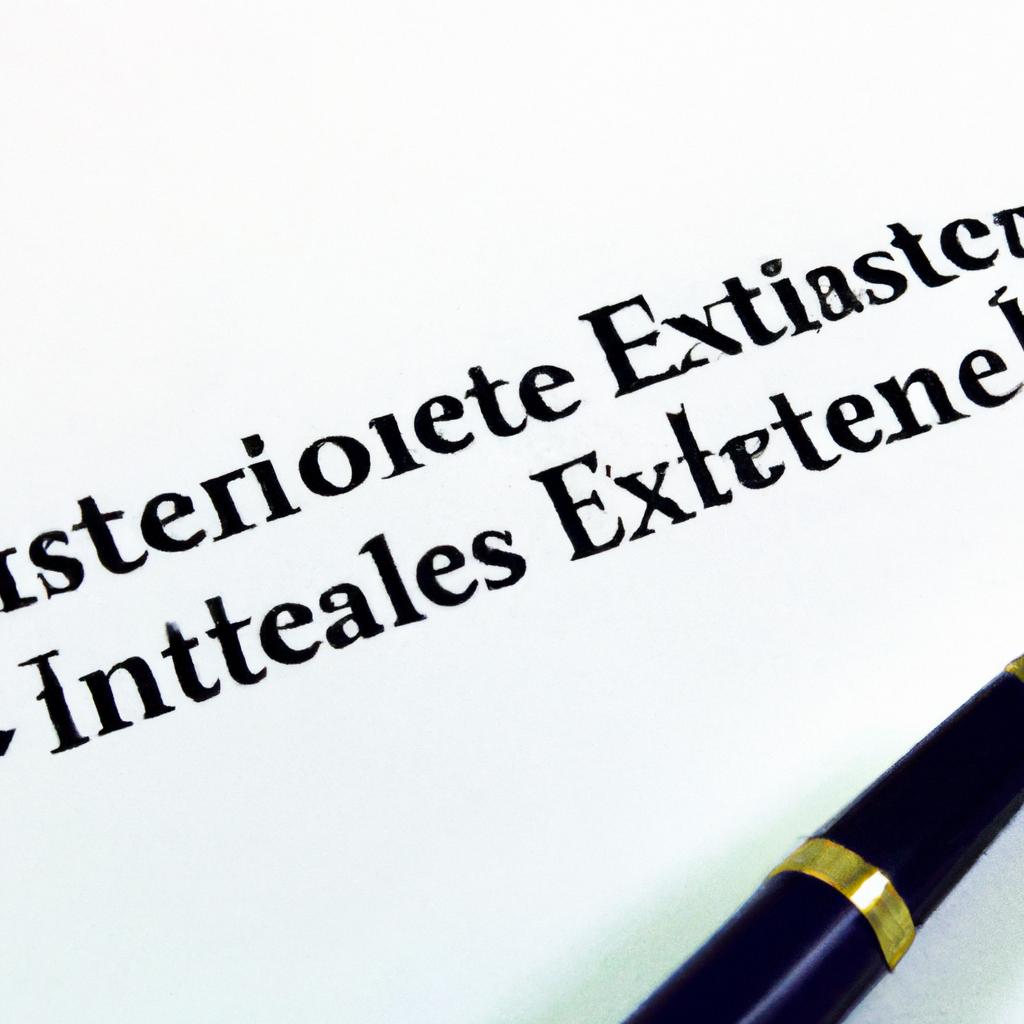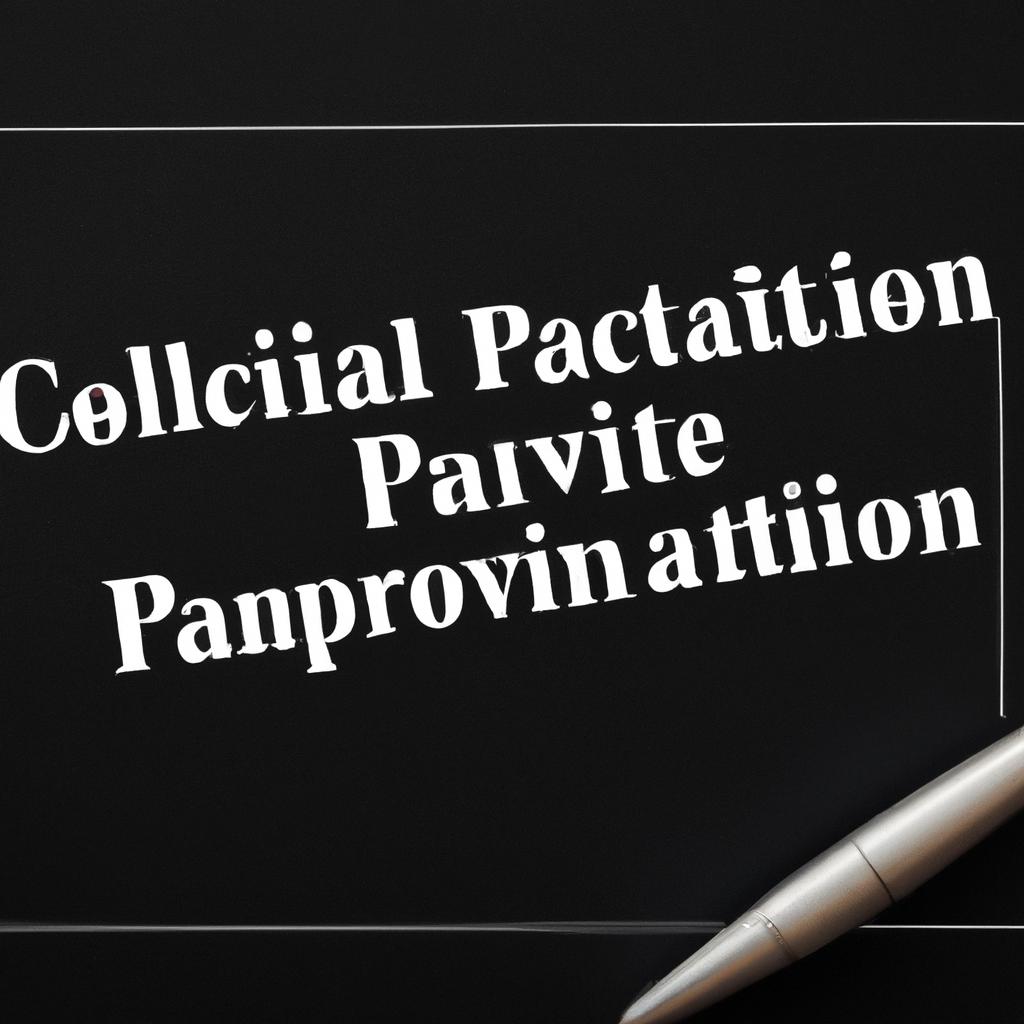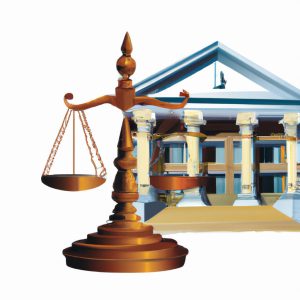When an individual passes away without a valid will or estate plan in place, they are said to have died intestate. This simple yet often overlooked fact can lead to a myriad of legal complications and uncertainties for both the deceased’s loved ones and their assets. At Morgan Legal Group in New York City, we specialize in navigating the complexities of intestacy laws and ensuring that our clients’ final wishes are carried out in a timely and efficient manner. In this article, we will explore the implications of dying intestate and the importance of proper estate planning to avoid such pitfalls.
Understanding the Implications of Dying Intestate in New York
When someone passes away without a valid will, it is referred to as dying intestate. In New York, this situation can have significant implications for the deceased’s estate and their loved ones. Without a will in place, the distribution of assets and property will be determined by state laws rather than the individual’s wishes. This can lead to complications, delays, and potential disputes among family members.
One of the key implications of dying intestate in New York is that the state’s intestacy laws will dictate how the estate is divided. This means that certain family members may inherit assets that the deceased may not have wanted them to receive. It is important for individuals to understand these implications and take proactive steps to create a comprehensive estate plan to avoid these potential issues. Consulting with an experienced estate planning attorney, like the professionals at Morgan Legal Group, can help ensure that your wishes are carried out and your loved ones are protected.

Key Factors to Consider when Dealing with an Intestate Estate
When dealing with an intestate estate, there are several key factors that you must consider in order to navigate the complex legal process smoothly. One of the first things to keep in mind is the distribution of assets according to the state’s intestacy laws. In the absence of a will, the assets will be divided among the legal heirs as per the law, which may not align with the deceased’s wishes. It is crucial to understand these laws and how they apply to the specific circumstances of the estate.
Another important factor to consider is the appointment of an administrator to handle the estate. The administrator will be responsible for managing the assets, paying off debts, and distributing the property to the rightful heirs. It is essential to choose someone who is trustworthy, competent, and willing to take on the responsibilities of the role. Additionally, keeping accurate records of all transactions and decisions made during the estate administration process is key to avoiding any potential legal disputes in the future.

Navigating the Complex Probate Process without a Will
When a loved one passes away without a will, also known as dying intestate, the probate process can become significantly more complicated. Without clear instructions on how to distribute assets, the court must follow state laws to determine how to handle the deceased person’s estate.
At Morgan Legal Group, we understand the challenges that come with . Our experienced team of estate planning attorneys can assist you in understanding the state laws that govern intestate succession, creating a plan to distribute assets fairly, and guiding you through the probate process with confidence. Let us help you protect your loved one’s legacy and ensure that their wishes are honored.

Benefits of Consulting with an Estate Planning Attorney for Intestate Cases
Consulting with an estate planning attorney for intestate cases can provide numerous benefits for individuals facing the complex process of distributing assets when a loved one has passed away without a will. An experienced attorney can offer valuable guidance and legal expertise to ensure that the deceased person’s estate is handled properly and in accordance with state laws.
- Legal Expertise: An estate planning attorney can navigate the legal complexities of intestate cases, ensuring that assets are distributed in accordance with state laws.
- Conflict Resolution: By consulting with an attorney, families can avoid potential conflicts and disputes that may arise when distributing assets without a will.
Furthermore, an estate planning attorney can provide personalized advice and strategies to help individuals protect their assets and ensure their wishes are carried out after they pass away. By seeking professional legal assistance, individuals can gain peace of mind knowing that their estate will be managed effectively and according to their wishes.
Q&A
Q: What does it mean to die intestate?
A: Dying intestate means that a person has passed away without having made a will or testament to dictate how their assets should be distributed after their death.
Q: Why is dying intestate a problem?
A: Dying intestate can lead to confusion and disputes among family members as to how the deceased’s assets should be divided. It can also result in lengthy legal battles and extra expenses.
Q: Who decides how the assets are distributed if someone dies intestate?
A: If someone dies intestate, the distribution of their assets is left up to the laws of the state in which they lived. These laws typically dictate that the assets are divided among the deceased person’s closest living relatives.
Q: Can a person prevent dying intestate?
A: Yes, a person can prevent dying intestate by creating a will or a trust to outline their wishes for the distribution of their assets after their death.
Q: What are some common reasons why people die intestate?
A: Some common reasons why people die intestate include procrastination, the belief that they do not have enough assets to warrant creating a will, and a reluctance to confront their own mortality.
Q: How can someone find out more about the laws surrounding dying intestate in their state?
A: It is recommended that individuals consult with an estate planning attorney to learn more about the specific laws in their state regarding dying intestate and to create a plan for the distribution of their assets after their death.
To Conclude
While the consequences of dying intestate can be complex and impactful, it is never too late to take control of your estate planning. By consulting with a legal professional and drafting a will, you can ensure that your final wishes are carried out and provide clarity and peace of mind for your loved ones. Remember, it is never too early to plan for the future.
 Everything You Need to Know About Dying Intestate: A Guide for Your Loved Ones
Everything You Need to Know About Dying Intestate: A Guide for Your Loved Ones
Dealing with the death of a loved one is never easy. Emotions are high, and there are numerous tasks and decisions to be made. One of the biggest challenges that arise in these situations is when the deceased did not have a will in place. This means that they have passed away intestate, or without a legal document dictating their final wishes.
While dying intestate may seem daunting and overwhelming, it doesn’t have to be. In this article, we will delve into everything you need to know about dying intestate – from what it means, the consequences, and the steps to take in such a situation. So, let’s get started.
What does it mean to die intestate?
When someone passes away without a valid will, they are considered to have died intestate. Without a will in place, the deceased’s estate is subject to the laws of the state where they resided. This means that their assets, property, and money will be distributed according to the state’s intestate succession laws.
Intestate succession laws vary from state to state, but they typically follow a set hierarchy of beneficiaries, starting with the surviving spouse. If there is no surviving spouse, the estate is then distributed to the deceased’s children or other close relatives. In some cases, the state may even take possession of the estate if there are no living relatives.
What are the consequences of dying intestate?
Dying intestate can have several consequences for your loved ones. Some of the main consequences include:
1. Your assets may not go to the intended beneficiaries:
Without a will, the deceased’s assets are distributed according to state laws, which may not align with their final wishes. This means that their assets may end up in the hands of someone they did not want to inherit. For instance, if the deceased wanted to leave a specific asset to a friend or a charity, it is highly unlikely to happen when there is no will in place.
2. Delays and complications in the distribution of assets:
The process of distributing the assets of the deceased without a will can be complex and time-consuming. It involves a lengthy legal process, including hiring an attorney, proving the death of the deceased, and obtaining letters of administration. These delays and complications can lead to a strain on relationships among family members and added emotional distress during an already difficult time.
3. Higher legal fees and taxes:
Dying intestate can result in higher legal fees and taxes. Without a will, the state can take a larger portion of the estate, and the legal procedures involved can be costly. This means that a significant portion of the estate may be used to pay legal fees and taxes, leaving less for the intended beneficiaries.
Steps to take if someone dies intestate:
If you have lost a loved one who passed away without a will, here are some steps you can take to handle the situation:
1. Obtain a death certificate:
The first step is to obtain a death certificate. This document will be required for various purposes, including settling the deceased’s bank accounts and insurance policies.
2. Contact a probate attorney:
It is highly recommended to seek the advice of a probate attorney if someone has died intestate. A probate attorney can guide you through the legal process, ensuring that all the necessary steps are taken to distribute the estate fairly.
3. Locate and secure the deceased’s assets:
The next step is to gather all the necessary documents and information about the assets and debts of the deceased. This may include bank statements, investment accounts, and property deeds. It is essential to secure these assets to prevent any potential disputes or losses.
4. File for letters of administration:
In the absence of a will, the court will appoint an administrator to distribute the assets. This process involves filing a petition with the probate court, along with a death certificate and an inventory of the deceased’s assets.
5. Follow the distribution order as per state laws:
As mentioned earlier, the distribution of assets will follow the hierarchy of beneficiaries outlined in the state’s intestate succession laws. This may not always align with the deceased’s final wishes but must be followed as per the law.
Practical Tips for Avoiding Dying Intestate:
To avoid the consequences of dying intestate, here are some practical tips for having a valid will in place:
1. Don’t procrastinate:
The thought of creating a will can be uncomfortable for some, but it is essential to start planning early. It is better to have a will in place and avoid the consequences of dying intestate.
2. Consult a professional:
While it may be tempting to write a will yourself, it is always advisable to consult a professional. An experienced attorney can ensure that your will is legally valid and adheres to state laws.
3. Update your will regularly:
Marriage, divorce, the birth of a child, or acquiring significant assets are all life events that may require you to update your will. It is essential to review and update your will regularly to ensure it reflects your current wishes.
In conclusion, dying intestate has significant consequences for your loved ones. While it may be an uncomfortable topic to discuss, it is essential to have a will in place to protect your assets and ensure your final wishes are honored. If you have recently lost a loved one without a will, it is essential to seek the guidance of a probate attorney to handle the legal process. Don’t wait until it’s too late – start planning for the future now.






